The Sea Ranch: Architecture, Environment, and Idealism
Conceived by a small group of Bay Area architects and designers in the early 1960s, The Sea Ranch development was envisioned as a progressive inclusive community, guided by the idealistic principles of good design, economy of space, and harmony with the natural environment.
Practice Area
Client
San Francisco Museum of Modern Art
Industry
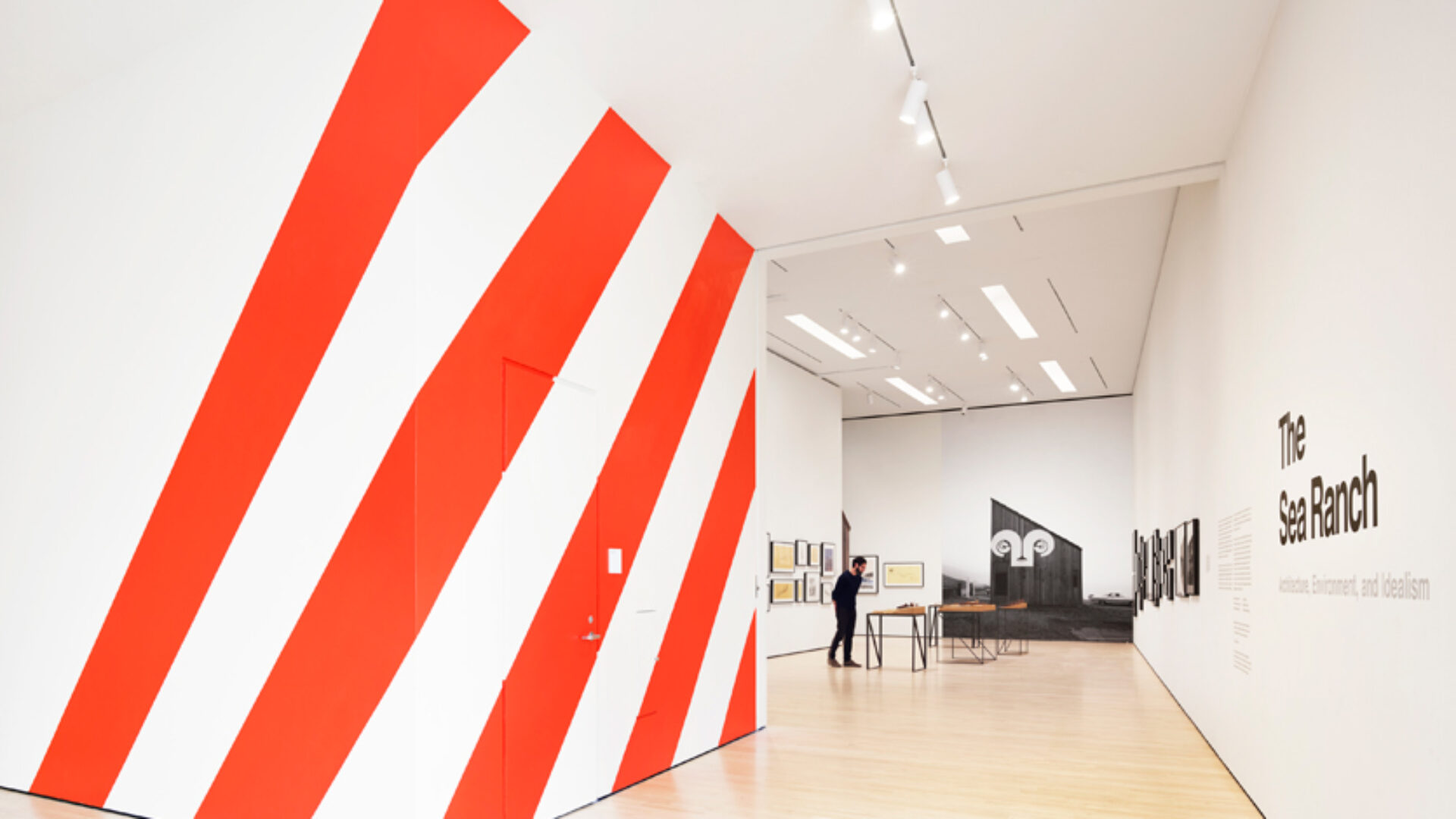
The Challenge
The primary design challenge for this exhibition was creating a varied and engaging experience within the small footprint of the gallery.
It was imperative visitors be drawn into the gallery from down a long hallway into a large scale reproduction inside the gallery. The exhibition had over 100 objects so balancing enough wall space with large photo-murals was also a challenge. A short documentary is also screened within the 1:1 scale reproduction so the team needed to ensure seating was plentiful.
Project Vision
The flow of the exhibition was largely determined by the placement of the reproduction of Unit 9, and based on that we determined which faces of it could be used to also hang art, photography, and objects.
The vitrine and pedestal design work to tie the gallery aesthetic together by utilizing a diagonal connector that mimics the angles seen in the Sea Ranch architecture.
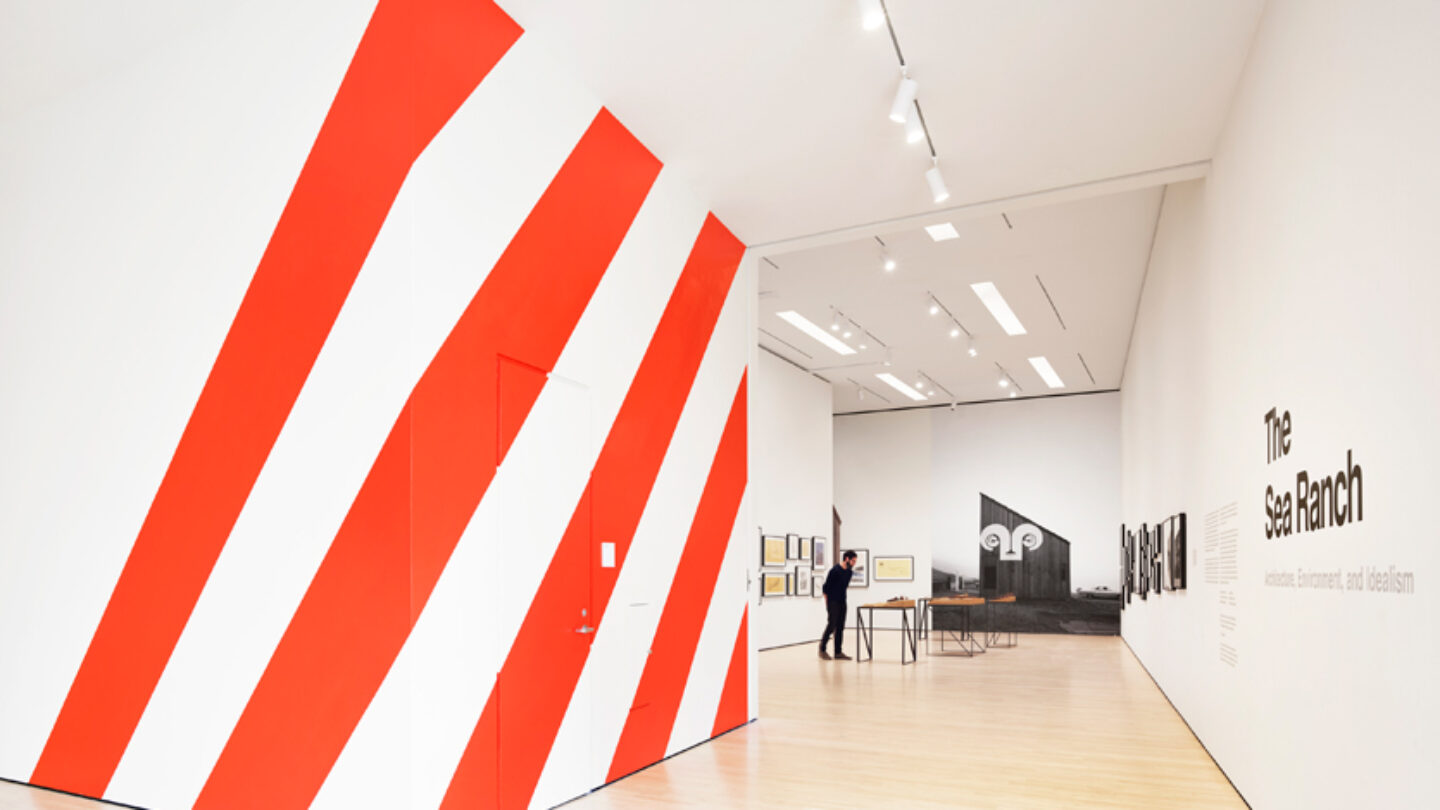
Matthew Millman
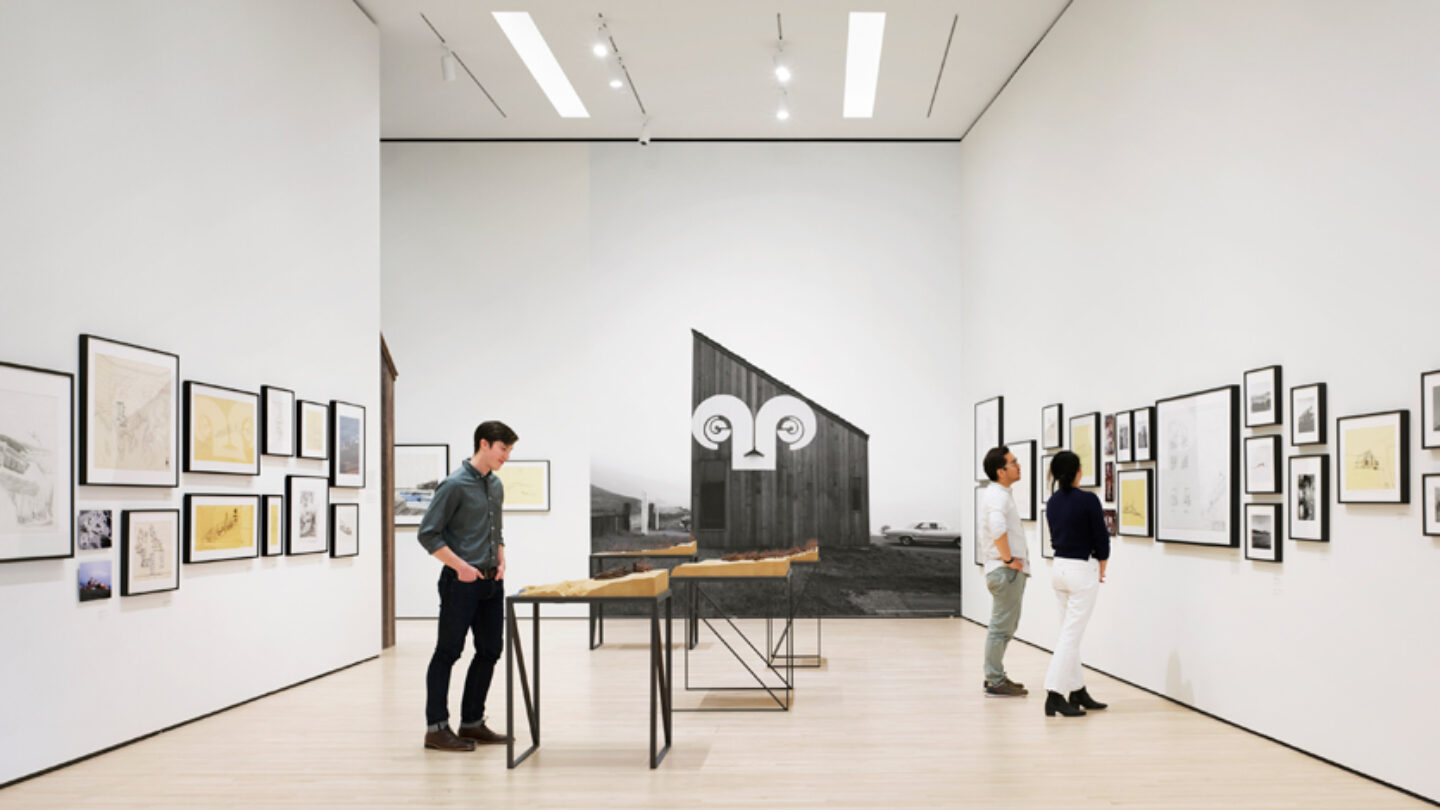
Matthew Millman
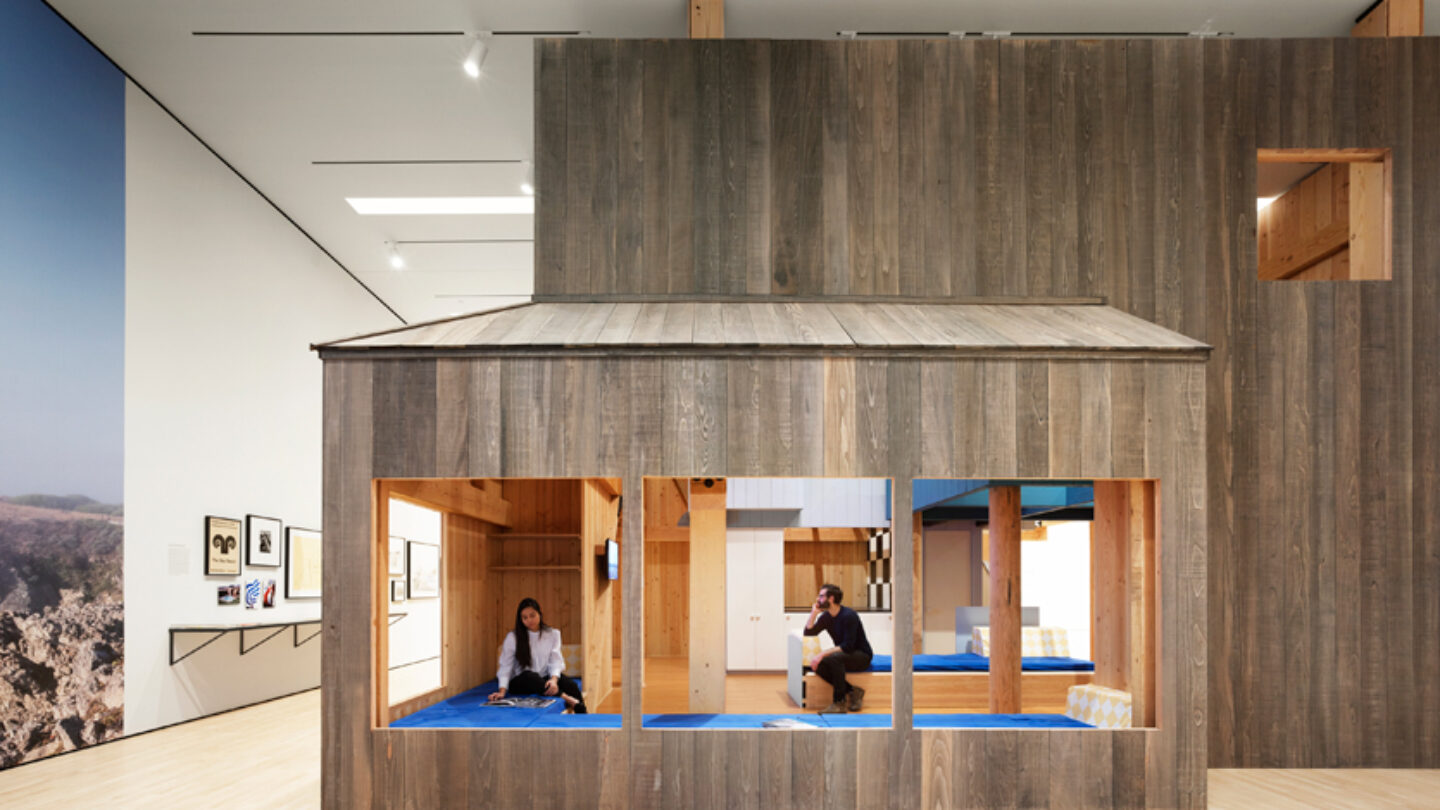
Matthew Millman

Matthew Millman
Design + Execution
Bold and bright supergraphics are a large part of the identity of The Sea Ranch and were originally designed by Barbara Staᆲher Solomon, who was commissioned to execute her signature supergraphics at the entrance and exit of the exhibition to appropriately set the tone.
Large photo blowups were used to show key architectural details as well as transport the visitor to the cliffs of the Pacific while sitting inside the reproduction of Unit 9.
The first photo-mural of The Sea Ranch marker building works in concert with the red and white supergraphics to draw visitors down the hallway and into the gallery. The typography of the exhibition title is drawn directly from the typography used at The Sea Ranch which is visible throughout the exhibition. The second photo-mural mimics the actual view of the Pacific Ocean that is visible from the “window seat” of Unit 9. Barbara Staᆲher Solomon’s red and white supergraphics also bookend the exhibition, easily indicating the flow through the gallery.
The exhibition received considerable and positive press coverage. The 1:1 scale reproduction was a first for the institution and helped to give visitors a sense of place that would not have been possible otherwise. It added to the museum’s library of solutions for how to approach design of Architecture + Design exhibitions, whose concepts and objects are different from the others shown within the museum.
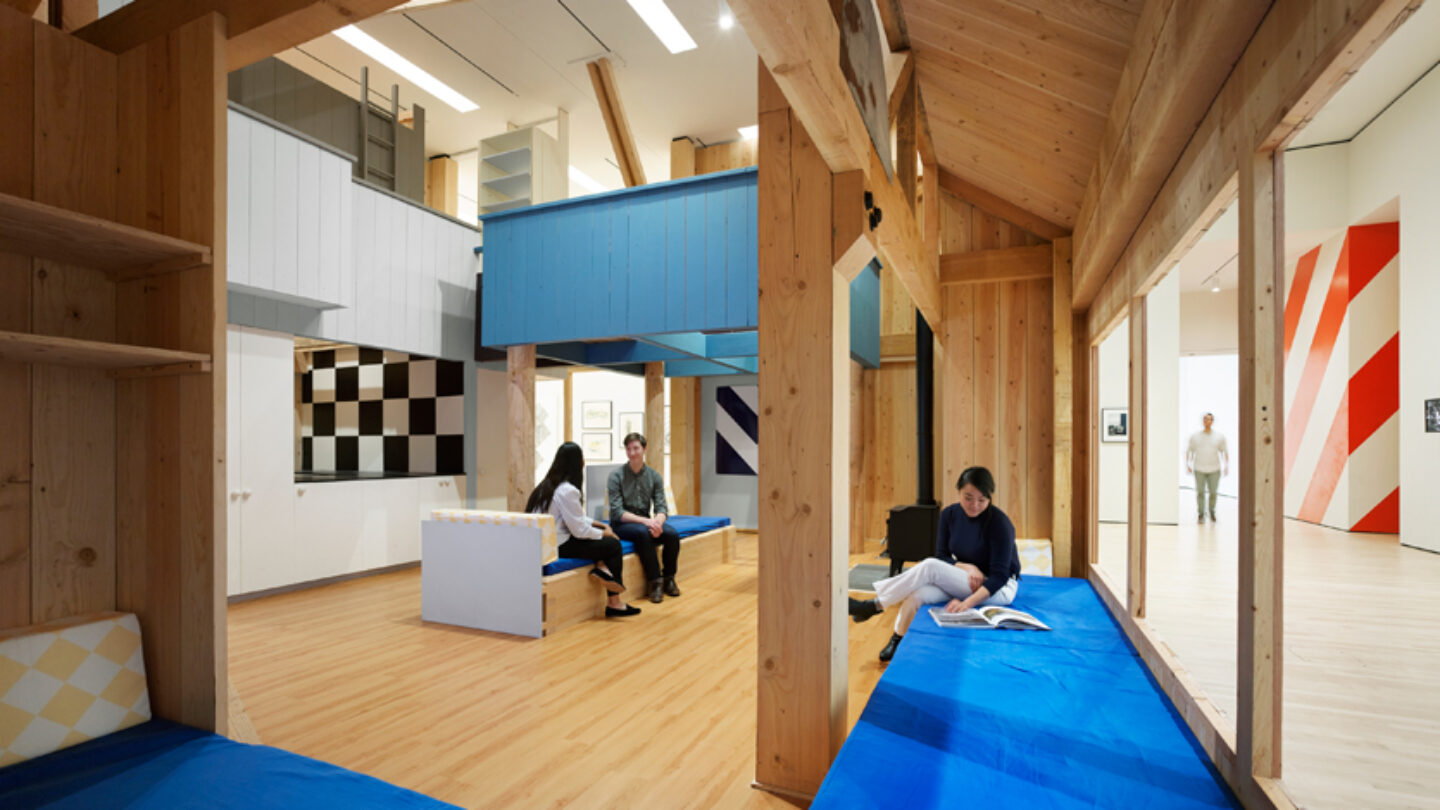
Matthew Millman
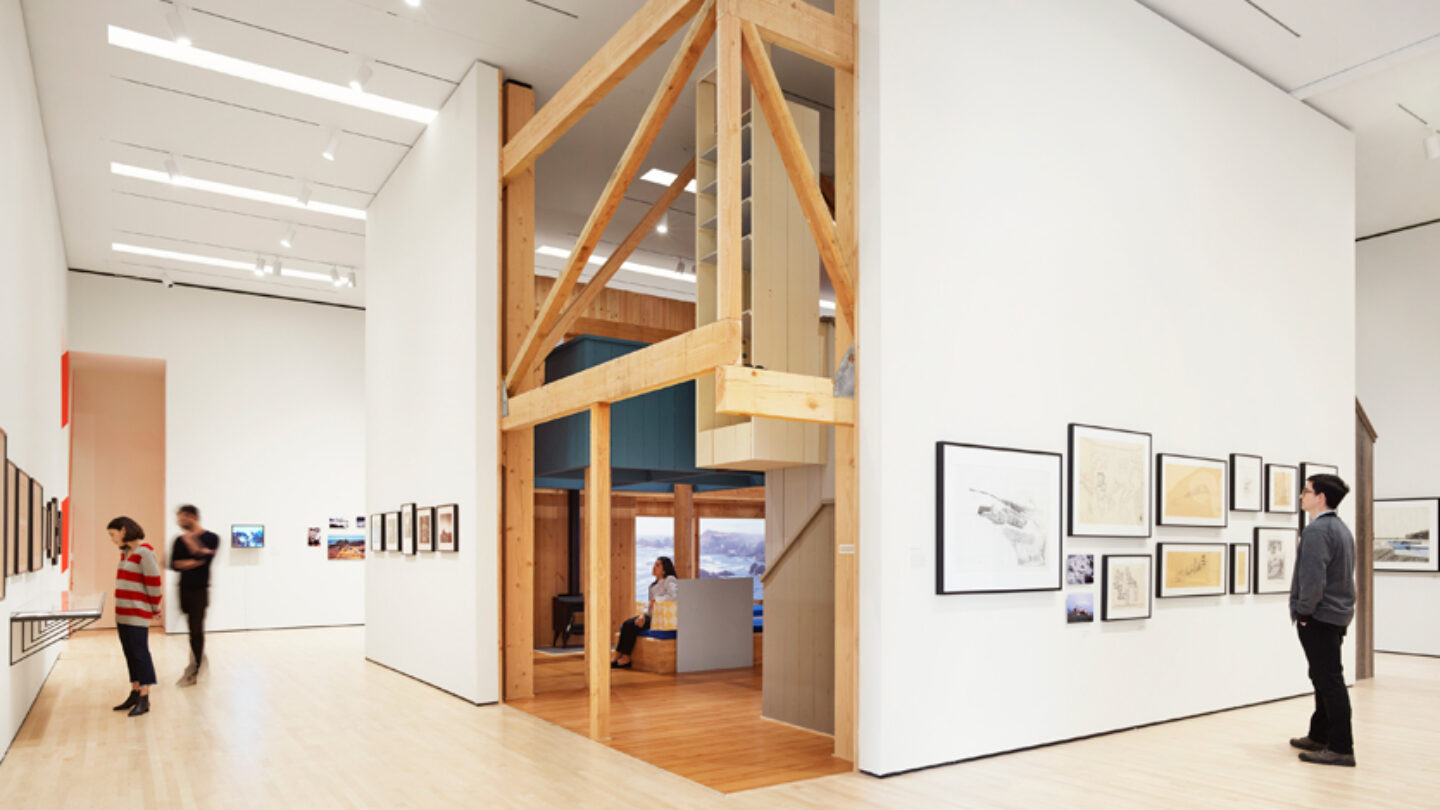
Matthew Millman
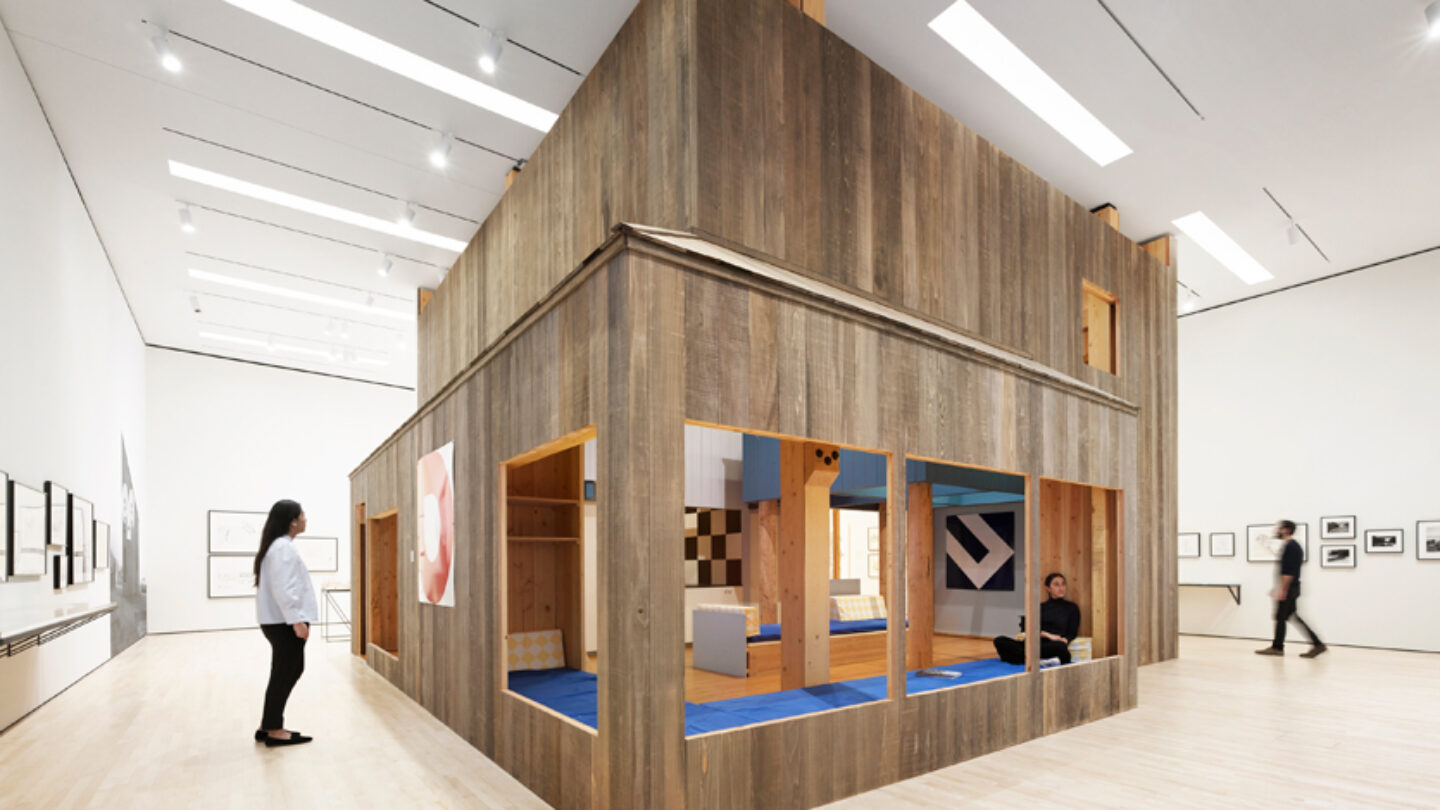
Matthew Millman
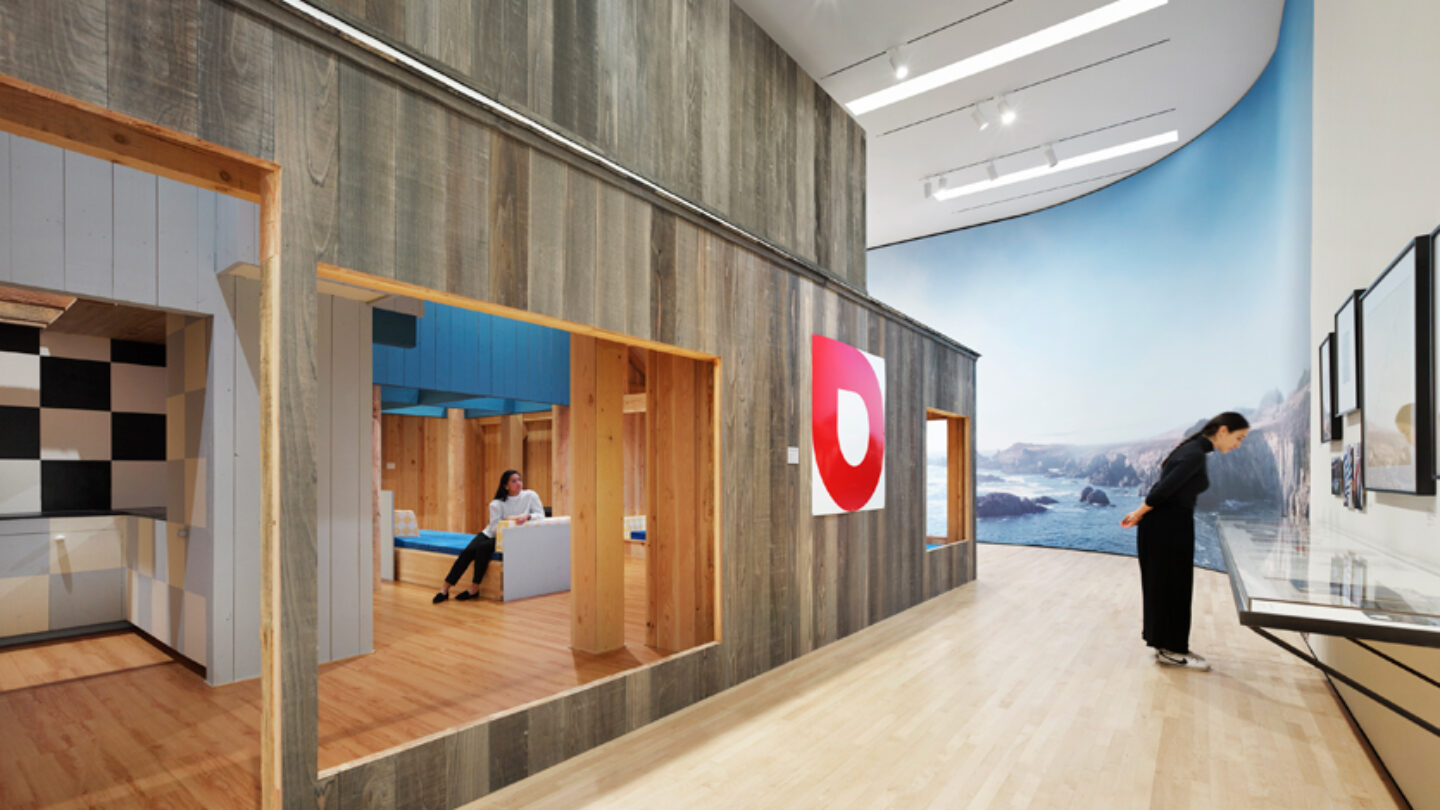
Matthew Millman
Project Details
The scale reproduction comes to life with the inclusion of the seascape mural. Strong scenography helps the visitors connect to place, something integral to understanding the experience of The Sea Ranch itself.
The experience of good design and economy of space in harmony with nature is well-captured at the Sea Ranch exhibition. The authenticity of material and effort to stay true to scale transcend a visitor’s experience as if they were by the Pacific cliffs. It evokes the emotion of calmness and appreciation for the idealistic approach. The transition from the experience within the unit reproduction to the presentation of drawings, photographs, and models is well done and gives a clear context for visitors.
Design Team
Sun Duck Oh (senior designer)
Meghan Berckes (art director)
Sarah Choi (exhibition designer)
Kent Roberts (exhibition design manager)
Laura Santizo (project coordinator)
Consultants
Barbara Staᆲher Solomon (commissioned designer)
Joseph Becker (associate curator of architecture and design, exhibition co-curator)
Jennifer Dunlop Fletcher (Helen Hilton Raiser curator of architecture and design, exhibition co-curator)
Kurt Pelzer (research assistant)
Fabricators
New Bohemia Signs (wall graphics)
Jonathan Hirabayashi Design (vinyl labels)
Barker Blue (wall graphics)
Mike Williams Drywall (drywall construction)
Jon Haller Painting (painting)
Decker Electric (electrical)
Photo Credit
Matthew Millman
Open Date
December 2018